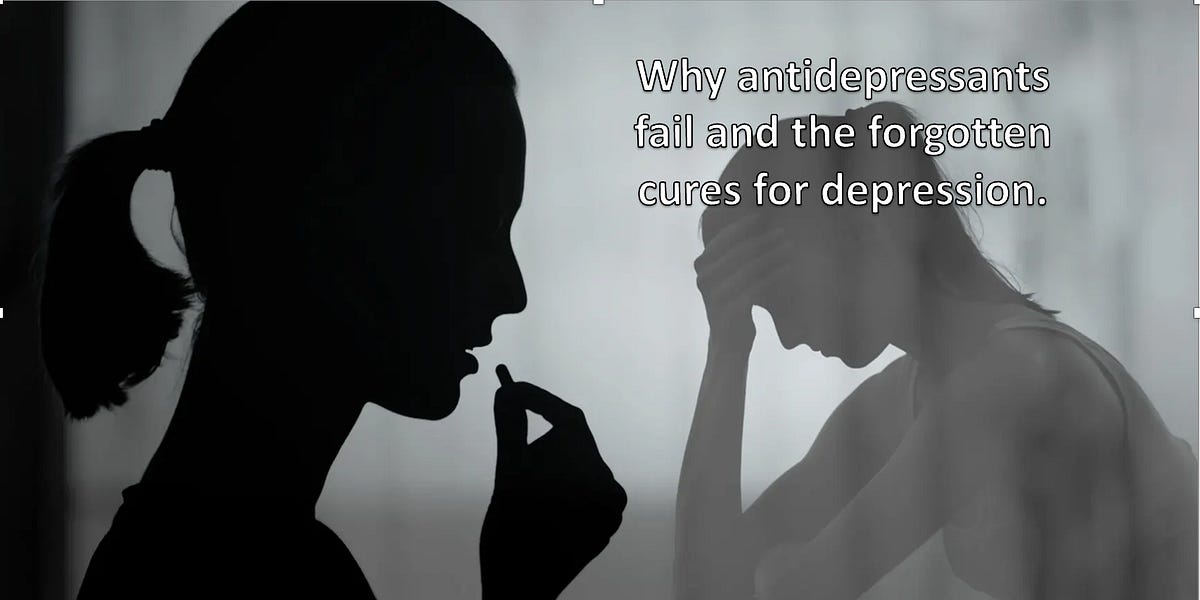
How Big Pharma Sold Depression and Its Treatment to the World
Why antidepressants fail many patients and a review of the forgotten cures for depression
•After the SSRIs were developed, their manufacturers realized the population needed to be convinced they were suffering from depression so as many people as possible would buy their drugs.
•The tricks the drug industry used to perform this were remarkable and have many parallels to how the predatory pharmaceutical industry pushes many other drugs on us.
•While a minority of patients (about a third) benefit from antidepressant therapy, the majority do not (termed “treatment resistant depression”), but unfortunately, until recently there have been minimal options available for these patients.
•Much of this results from depression being viewed as a single illness, rather than a myriad of conditions with somewhat overlapping symptoms.
•In this article I will discuss the most effective non-pharmaceutical approaches I and my colleagues have come across for treating depression.
https://www.midwesterndoctor.com/p/how-big-pharma-sold-depression-and-1c0?publication_id=748806&post_id=139879901
No Excavations Done Yet at Kamloops Residential School as First Nation Provides Update on ‘Complex’ Investigation
"I am honoured to speak directly with Albertans about the road ahead for our province, the choices we face together, and how you will have the final say in shaping Alberta’s future within a strong and united Canada."
https://x.com/ABDanielleSmith/status/2024661280163058030

















